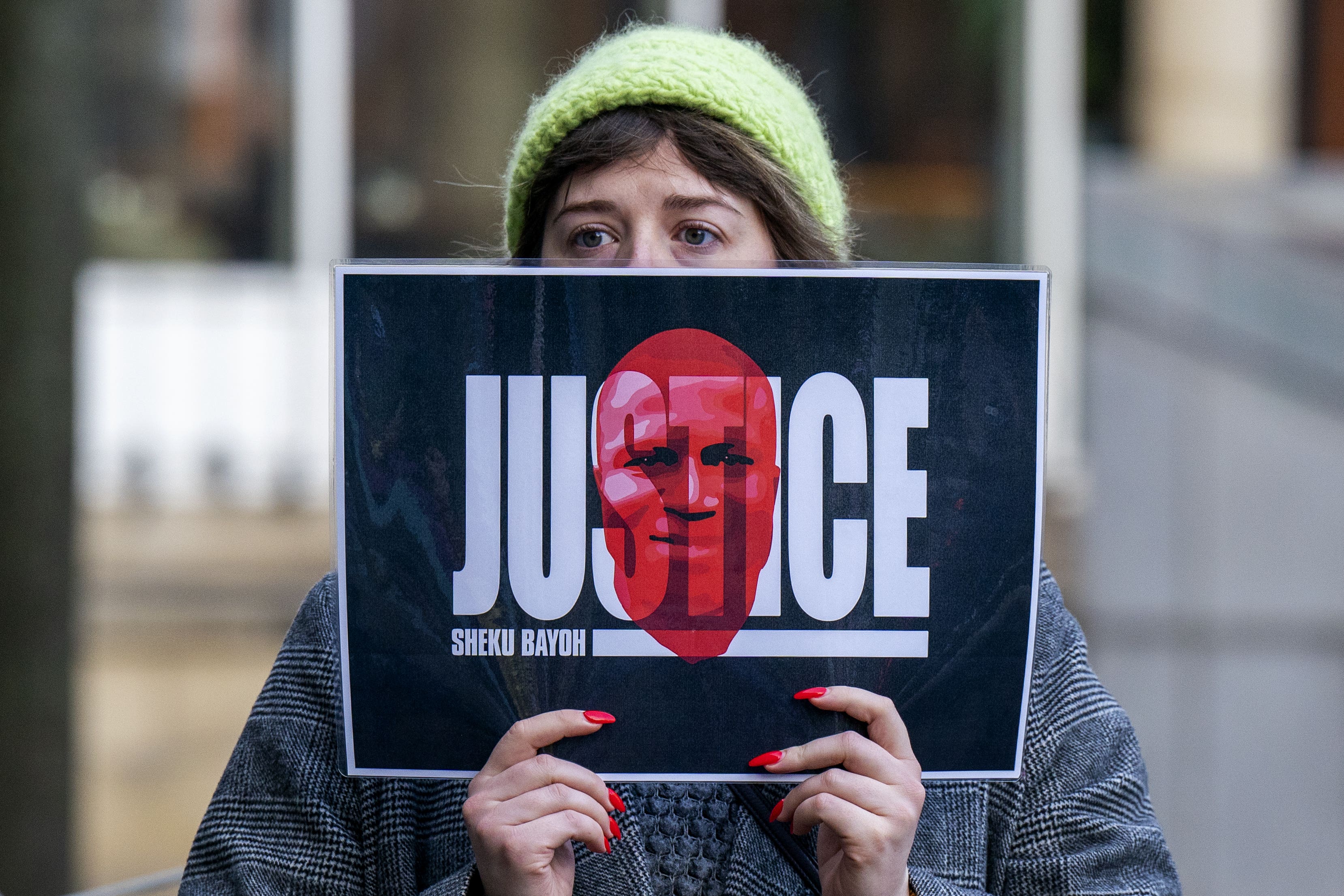Things ‘weren’t great’ for ethnic minority police officers in 90s, inquiry told
The Sheku Bayoh Inquiry is currently examining whether race was a factor in the 31-year-old’s death while being restrained by police in 2015.

Your support helps us to tell the story
From reproductive rights to climate change to Big Tech, The Independent is on the ground when the story is developing. Whether it's investigating the financials of Elon Musk's pro-Trump PAC or producing our latest documentary, 'The A Word', which shines a light on the American women fighting for reproductive rights, we know how important it is to parse out the facts from the messaging.
At such a critical moment in US history, we need reporters on the ground. Your donation allows us to keep sending journalists to speak to both sides of the story.
The Independent is trusted by Americans across the entire political spectrum. And unlike many other quality news outlets, we choose not to lock Americans out of our reporting and analysis with paywalls. We believe quality journalism should be available to everyone, paid for by those who can afford it.
Your support makes all the difference.A former Fife police constable has told the Sheku Bayoh Inquiry that things “weren’t great” for ethnic minority officers when he joined the force in 1993.
Mr Bayoh, 31, a father of two, died after he was restrained on the ground by six police officers in Kirkcaldy, Fife, on May 3 2015.
The inquiry is investigating the circumstances of his death and whether race was a factor.
I can't sit here and say that I wasn't discriminated against. You know, some people thought that I got certain jobs just because of my colour, so it was never a case for me getting a job and being accepted
Paul Castledine, who retired from Police Scotland in 2017 after 24 years, told the inquiry on Friday that he was targeted by colleagues because of his skin colour, but did not report it as he did not want to “make waves” in case it made things worse.
The abuse included, he said, a “plot” by colleagues to force him out of the job while he was still on probation, colleagues failing to respond to his calls for back-up, and resentment from fellow officers who thought he had only got particular jobs because of his skin colour.
The former Royal Marine, who joined what was then Fife Constabulary in 1993, also said that complaints against white officers were often handled with an informal slap on the wrist, whereas those against black or ethnic minority officers would typically result in formal “due process” being followed.
In his written submission, which was read out to the inquiry, Mr Castledine said: “Did I experience racism within the police? Yes, I’m pretty sure I did. I’ve got pretty thick skin, so a lot of it was just like water off a duck’s back, and really didn’t affect me.
“I can’t sit here and say that I wasn’t discriminated against. You know, some people thought that I got certain jobs just because of my colour, so it was never a case for me getting a job and being accepted.”
Mr Castledine, who was the only black officer in his station, said that when he first joined the force and was still on probation, he was deliberately given an unrealistic workload, and one day found a blank resignation proforma letter in his pigeonhole.
He said his boss pulled him aside and told him he knew “what was going on” and signed off his probation there and then, six weeks early, to protect him, and that some of the officers who had been trying to force him out were moved without their behaviour being addressed.
He also described two occasions where he was subject to formal investigations following complaints against him from members of the public that, he said, had “no substance”.
I would have expected everyone to be working together. I came from a military background, where if somebody was in trouble, he wouldn't question anybody asking you for help
The ex-Marine compared the police unfavourably to his time in the military, saying: “I would have expected everyone to be working together. I came from a military background, where if somebody was in trouble, he wouldn’t question anybody asking you for help. And the police was a different job.”
He was also asked why, given his experience, he had described as “stupid” comments made last year by former chief constable Sir Iain Livingstone about institutional racism in Police Scotland.
In May 2023 Sir Iain gave a statement in which he said: “Institutional racism, sexism, misogyny and discrimination exist. Police Scotland is institutionally racist and discriminatory.”
Mr Castledine said: “I think from the beginning, in the 1990s when I joined, things weren’t great for females, for BME officers.
“I think that was maybe a statement that could have been made in the 90s and certainly shouldn’t have been made in 2023.”
He added that the statement was “probably true” of the 1990s, but that now “I don’t think there are serious issues within the police, and certainly Police Scotland”.
A Police Scotland spokesperson said: “It is vital that the role and independence of the public inquiry is respected to ensure the application of the rule of law, due process, and justice being served.
“Police Scotland will continue to participate fully in an open and transparent manner.”
The inquiry continues.